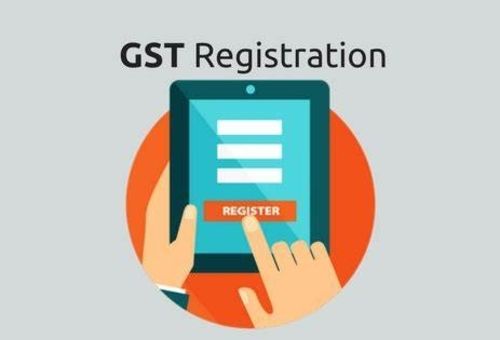How CFO Account & Services Can Streamline Your GST Registration Process in Singapore
How CFO Account & Services Can Streamline Your GST Registration Process in Singapore
Blog Article
From Beginning to End Up: A Detailed Summary of GST Enrollment and Just How to Successfully Register Your Company
Browsing via the detailed procedure of GST enrollment can be a vital step for any kind of organization looking to establish compliance and authenticity in the marketplace. Why choose CFO Account & Services for GST registration in Singapore. From comprehending the fundamental concepts of GST to meeting the qualification criteria and gathering the required documentation, the journey towards successful registration can often feel like a challenging task. With the appropriate assistance and understandings, services can streamline this process and unlock the benefits that come with being a registered entity.
Recognizing GST and Its Significance
Recognizing the Goods and Solutions Tax (GST) and its significance is crucial for organizations operating in economic situations where this taxes system is implemented. By permitting companies to assert input tax credit histories on the tax paid on purchases, GST ensures that tax obligations are determined only on the worth included at each phase of the supply chain.
Furthermore, GST promotes conformity and openness in the tax regimen, reducing tax obligation evasion and boosting federal government revenue. It simplifies tax administration and conformity for companies by providing a typical system for tax filing and repayment. On the whole, a complete understanding of GST is critical for businesses to efficiently navigate the intricacies of the tax obligation system and guarantee compliance with the legislation.
Qualification Requirements for GST Enrollment
To sign up for GST, organizations must fulfill particular qualification requirements described by the tax authorities. The primary demand for GST registration is that the service's accumulated turnover surpasses the limit established by the government, which varies by state. As of the existing guidelines, businesses with a yearly turnover of Rs. 40 lakhs or even more in most states have to register for GST. Nevertheless, for organizations operating in northeastern states and sloping areas, the limit is Rs. 20 lakhs. In addition, particular services, such as those associated with inter-state supply of services or items, casual taxed persons, and non-resident taxable individuals, are called for to register for GST no matter their turnover.
In addition, businesses associated with providing goods or solutions via shopping platforms are also mandated to register for GST, irrespective of their turn over. Businesses that were registered under the previous tax obligation program, such as Barrel, import tax duty, or service tax, have to shift their registration to GST. Adhering to these qualification standards is crucial for services seeking to abide by the GST laws and prevent any fines for non-compliance.
Documents Required for GST Enrollment
When getting GST enrollment, organizations need to guarantee they have all the needed documents in order to complete the procedure efficiently and successfully. The essential records required for GST enrollment include evidence of organization registration or unification such as the Certificate of Incorporation, collaboration action, or registration certificate. In addition, companies require to give proof of address for the primary place of business, which can be sustained by papers like an utility bill or a rental contract.
Additionally, papers verifying the identity and address of the promoters or companions included in business, such as frying pan card, Aadhaar card, or ticket, are crucial for GST enrollment. Savings account statements or canceled cheques showing the name of the address, account, and company number are likewise compulsory to validate the checking account information supplied during enrollment.
Making certain all the required files remain in order and readily offered will enhance the GST registration process and assistance businesses avoid complications or hold-ups.
Online Enrollment Refine for GST

After finishing the form, supporting papers require to be uploaded as per the standards given. These documents generally include proof of service enrollment, address proof, bank declarations, and identification evidence of business proprietor. It is important to guarantee that all papers are clear, valid, visit this site right here and published in the specified format to prevent hold-ups in the enrollment process.
Once the application and records are sent, businesses can track the condition of their GST enrollment online. If there are no issues or additional information required, the GST enrollment certificate will certainly be issued online, marking the successful conclusion of the on-line enrollment process.
Post-Registration Compliance and Tips

Services ought to remain updated on any kind of modifications in GST policies, prices, or compliance procedures to make essential modifications without delay. Looking for professional aid from tax obligation experts or accountants can also aid organizations browse complicated GST compliance needs properly.
Conclusion
To conclude, the process of GST registration is crucial for organizations to comply with tax regulations and run lawfully. By understanding the qualification criteria, collecting the essential papers, and completing the on the internet enrollment process, companies can effectively register for GST. When required to guarantee smooth operations., it is crucial to stay compliant with post-registration demands and seek expert guidance (Why choose CFO Account & Services for GST registration in Singapore).
Services that were registered under the previous tax obligation regimen, such as VAT, excise duty, or service tax obligation, need to change their registration to GST. The key papers required for look here GST registration consist of evidence of service enrollment or unification such as the Certificate Visit Website of Unification, collaboration deed, or enrollment certification.Upon successful completion of the GST registration procedure, businesses should quickly stick to post-registration conformity needs to preserve regulative compliance and make sure smooth procedures.In verdict, the process of GST enrollment is essential for services to abide with tax obligation regulations and operate legitimately. By understanding the qualification requirements, gathering the required documents, and completing the online registration process, services can efficiently sign up for GST.
Report this page